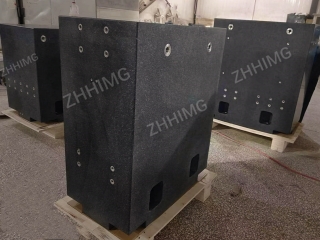The Thermal Stability of Cast Iron Beds in Machining: A Comparison with Mineral Casting Machine Beds
In the realm of precision machining, the stability of the machine bed is paramount to maintaining accuracy and ensuring high-quality outputs. Two commonly used materials for machine beds are cast iron and mineral casting (also known as polymer concrete). Each material has its unique properties that affect thermal stability and, consequently, machining accuracy.
Thermal Stability of Cast Iron Beds
Cast iron has been a staple in the manufacturing industry for decades, primarily due to its excellent damping properties and rigidity. However, when it comes to thermal stability, cast iron has its limitations. Cast iron beds can expand and contract with temperature fluctuations, which can lead to dimensional changes and affect machining accuracy. The thermal conductivity of cast iron is relatively high, meaning it can quickly absorb and dissipate heat, but this also means it can be more susceptible to thermal distortion.
Mineral Casting Machine Beds
On the other hand, mineral casting machine beds are gaining popularity due to their superior thermal stability. Mineral casting is a composite material made from a mixture of epoxy resin and mineral aggregates like granite. This combination results in a material with low thermal conductivity and high thermal inertia, meaning it is less likely to experience rapid temperature changes. Consequently, mineral casting beds can maintain their dimensional stability better than cast iron beds under varying thermal conditions.
Comparative Analysis
When comparing the two materials, mineral casting machine beds generally offer better thermal stability than cast iron beds. The low thermal conductivity of mineral casting means that it is less affected by ambient temperature changes and the heat generated during machining processes. This stability translates to more consistent machining accuracy, making mineral casting an attractive option for high-precision applications.
In conclusion, while cast iron remains a reliable and widely used material for machine beds, mineral casting offers superior thermal stability, which can significantly enhance machining accuracy. As the demand for precision in manufacturing continues to grow, the choice of machine bed material will play a crucial role in achieving and maintaining high-quality standards.
Post time: Sep-14-2024

